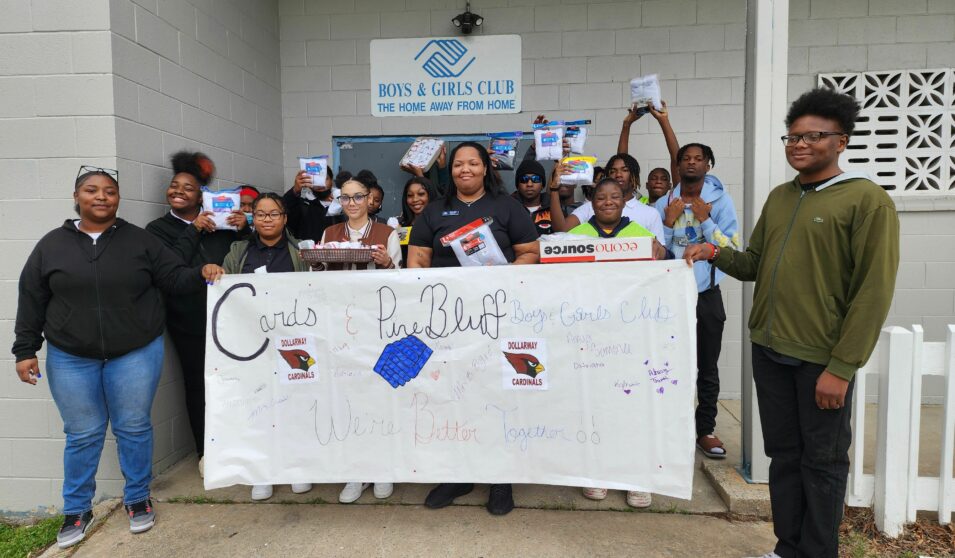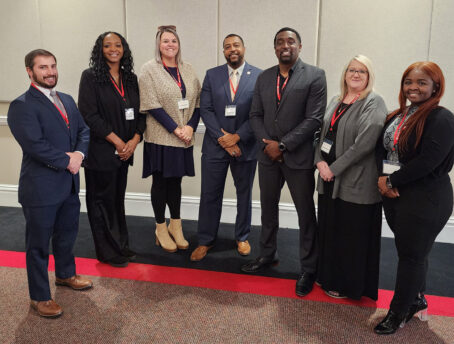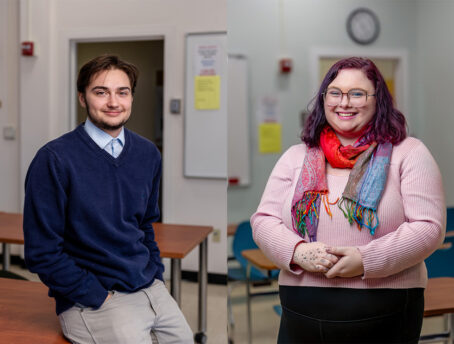Rural schools are not only the social and economic hub of the areas they serve, but they are also an essential lifeline of emotional support and social services for students and the larger community. Often the task of ensuring our students are seen, heard, and loved falls on the educators. TyKesha Cross, a Junior High and 9th Grade Banking teacher at the Pine Bluff School District in Pine Bluff, AR, knows personally the power of teachers and education to lift students out of incredibly difficult situations.
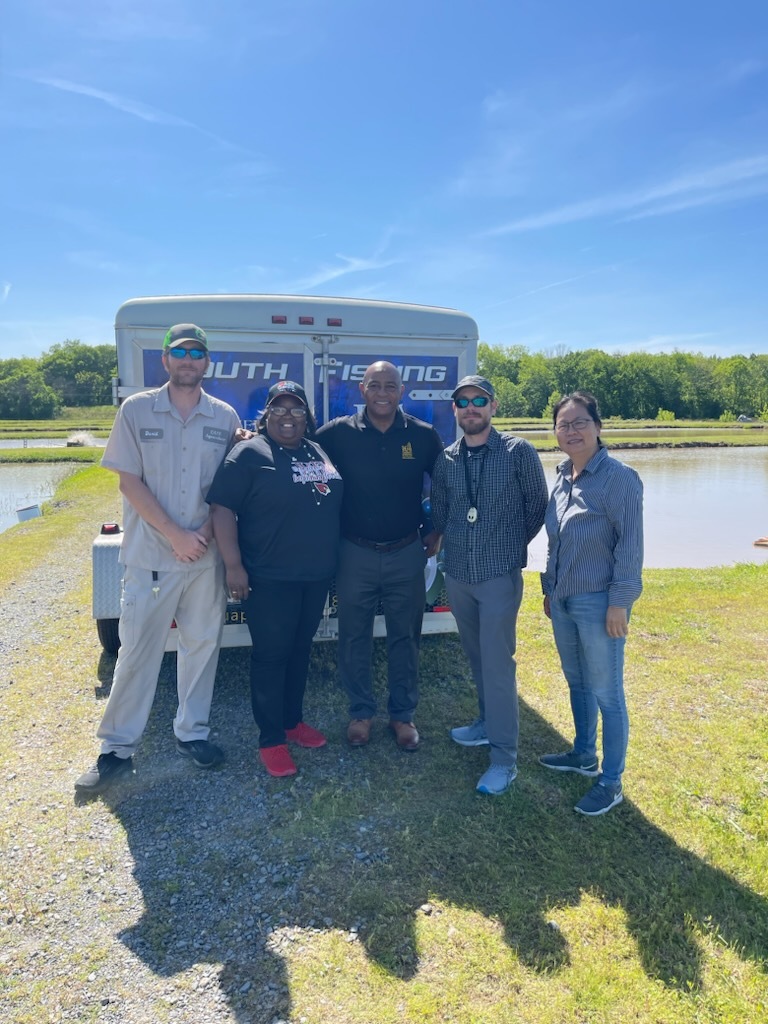
Recently consolidated with a neighboring district, the Pine Bluff School District (PBSD) consists of 6 schools serving 2,948 rural students, 99% of whom self-identify as Black. TyKesha shares that since the two districts have consolidated, “We are now truly the center of our community.” More than being a hub of common connection though, she underscores that the school is a hub of refuge and hope for students too: “School was not only a place to educate me, which it did a great job of doing, but it was the place that saved my life! It was a refuge for me, a safe haven, a hot meal, a counseling facility, and sometimes, a way out. 25 years later, and the same school that saved my life is saving others. PBSD provides that family-school-community partnership. It is the avenue used to give students the social, life, and interactive skills to be producers in this diverse world.”
TyKesha shares how she and her family were greatly affected by struggle and strife growing up, including an episode of gun violence that nearly took her life. Yet through it all, she joyfully tells how her grandmother “found the strength and courage to raise me to look to education as an opportunity to live a better adult life, and that I did.” Her rural school provided a ray of hope in an otherwise bleak situation, and when an unexpected pregnancy threatened to end her high school career it was a rural educator that encouraged and empowered her to fight through the difficulty: “My then counselor made me promise that I would graduate and enroll in a local college after having my son. I completed my diploma and enrolled in Southeast Arkansas College, where I graduated with honors. She then helped me enroll in the University of Arkansas at Pine Bluff. I also graduated with honors from there too. If it were not for my counselor, I could honestly say that I would not be sharing this story with you.”
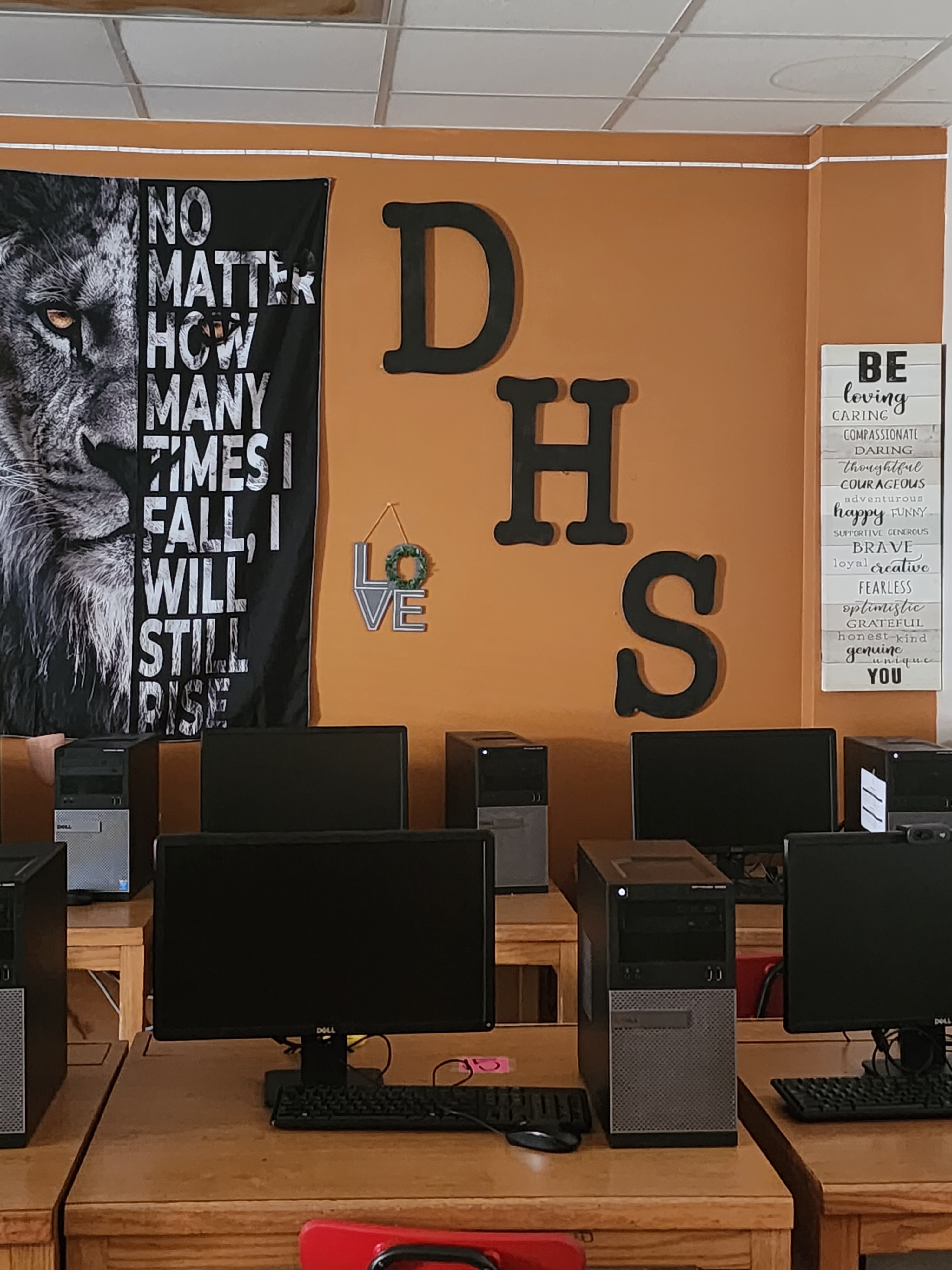
She considers it a blessing that so many people and opportunities came into her life to help her along the way. In 2008, during the peak of the Subprime Mortgage Crisis, a familiar face once again emerged that would set TyKesha on the path to becoming a teacher: “My high school counselor, who was now the principal, asked my husband to tell me to come work for her. I had always wanted to be a teacher, and I used to play with my dolls on the porch teaching them. She hired me to report to my old high school to teach History, and I was as afraid as could be! But, I put on my Superwoman cape, and off I went. It was indeed the best decision I could have ever made, as now I’m able to give back, if only a small piece, of what was given to me–a chance to change my life.”
One of the cherished qualities of teaching in a rural school is the deeply personal connection and commitment teachers and students grow between each other. Though starting her new life as a teacher was initially frightening, TyKesha found that returning to the strong, place-based bonds that united her with her students was essential: “My mentor teacher, who knew me from my mother’s womb, told me to treat the students as if they were my own children. That was the best advice anyone has ever given me. I look for opportunities to connect with my students on a personal level.”
For TyKesha, that atmosphere of care and compassion was also built from enduring and overcoming the same struggles that impact her students. From hunger and drug abuse, to poverty and violence, TyKesha builds understanding and trust with her students by letting them know that she too experienced it all, that they are not alone, and that they too can overcome their situation. “I can not only provide my students with sympathy, but empathy,” she beams, “Life certainly has not dealt me a good playing hand, but I have learned to take the hand that I was dealt and play the cards in a different order.”
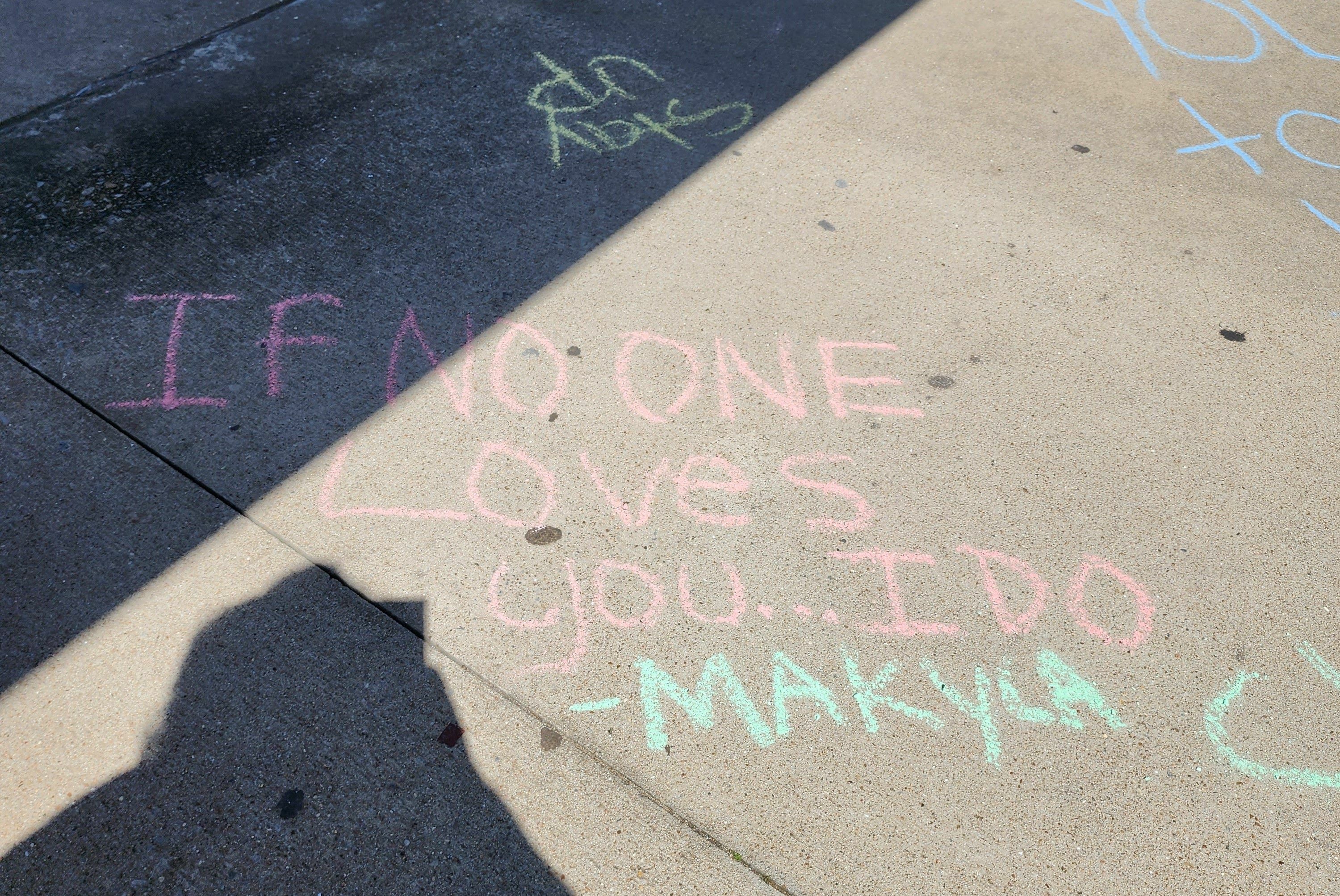
Although coming from the same background has given TyKesha a leg up in connecting with her students, who she calls scholars, she admits that she “initially struggled with finding a way to help kids relieve some of the stress and worries from their home life.” Thankfully, through an opportunity from the Arkansas Teacher Corps, TyKesha was able to receive the funding and training needed to fully support her students. “They awarded me a scholarship to attend a training on Social Emotional Learning Foundations (SELF),” she shares, “That training changed the entire culture in my class. The first few minutes of class, I allow them to participate in a SELF activity where I ask them, "If you were a weather report, what would your report be?" One scholar said, "cloudy with a chance of ACID rain". I quickly stopped my planned lesson, updated my lesson plan to reflect the change, emailed my principal to let him know I would not be in the building, and grabbed a box of sidewalk chalk. I had to help in only the way I knew how: with love. I had teachers come to my class after reading all the heartfelt messages my scholars wrote in chalk and cry because their hearts too were filled from the positive expressions.”
TyKesha has been able to have an incredible and lasting impact on the lives of her students. She recounts the story of one student in particular: “My first year, I had a student that other teachers had warned me about. They said he was one of the worst behaved students. I was so prepared for him, but also had a bit of fear. I shared some of my personal issues growing up, and he was intrigued. Halfway into the semester, he came up to me after class and wanted me to help him get on the honor roll. He worked so hard that semester, and almost every day he wanted to talk about his grades and how he was doing so well. He didn’t make the honor roll, but he was awarded the PBIS award, which signified a tremendous change in his grades and attitude. A student that was supposed to be the worst of the worst ended up being my best student, and not only that but changed his entire life!”
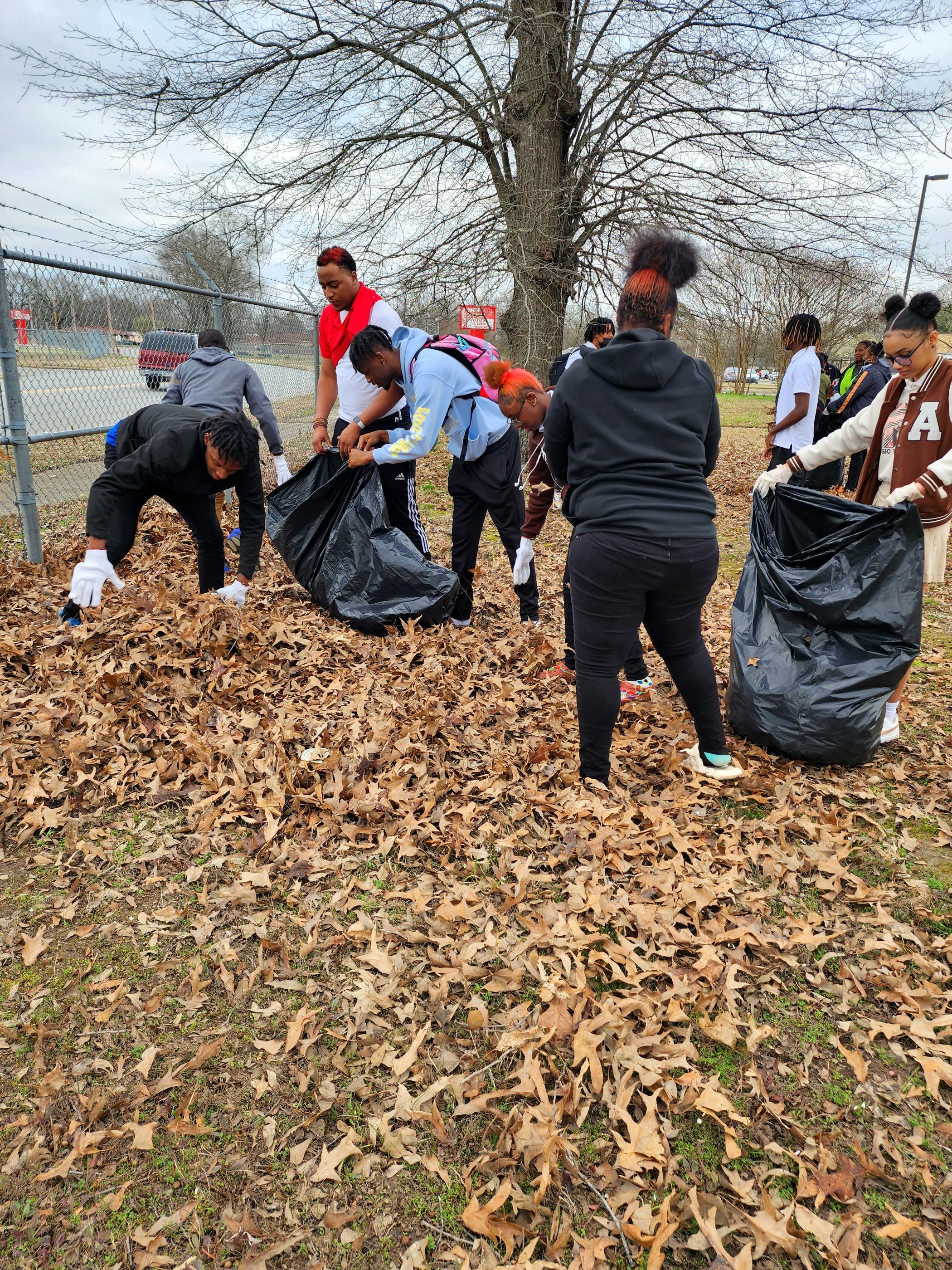
TyKesha understands that building bridges with parents is just as important. In addition to being a teacher, she was also named as the Parent Facilitator for her school, “so engaging parents, families, and the community became my norm. Just as with my students, my first objective was to create a welcoming environment, and my next goal was to focus on the positive by letting them know how their child has been a model student, showing leadership skills, or maybe they went out of their way for a peer.” More than building rapport, TyKesha emphasizes that simply spreading positivity should be a priority: “Parents always receive those dreaded calls about a child's misbehavior, but what about shouting out the good things that go on through the day?”
Spreading positivity, encouragement, and care through education is a hallmark of TyKesha’s time in the classroom, but it also defines her leadership in the community: “I am indeed a community leader. However, I prefer to stand at the back of the room knowing I wrote the lyrics to the song that went platinum, but never sang a note. I am a servant leader, a charismatic leader, and a transformational leader. I’ll give you my best until I have nothing left.”
TyKesha affirms that, despite the challenges they face, rural schools are “rich in people who go above and beyond to make the best of the resources that are available.” She laments “how hard it is to leave at the end of the day and carry so many kids in your heart. Kids are hurting, and I leave everyday thinking about what my family and I can do to help ease some of their pain.” However, through her power as an educator, TyKesha finds joy in knowing that she can offer the “love beyond imagination and my genuine heart and desire to see them beat the odds just as I did! The best advice that I have for other rural teachers and advocates is to continue to push down walls, don’t accept no for an answer, and always think about the ‘least of them' in everything you do.”
Hear more about TyKesha’s journey into education, and her passion for the career:
We are grateful to TyKesha for sharing her experiences as a rural teacher in Arkansas. Thank you to our partners at the Arkansas Teacher Corps for connecting us with TyKesha. The Arkansas Teacher Corps collaborates with the Rural Community Alliance to lead Rural Schools Collaborative's Arkansas Delta Regional Hub.

